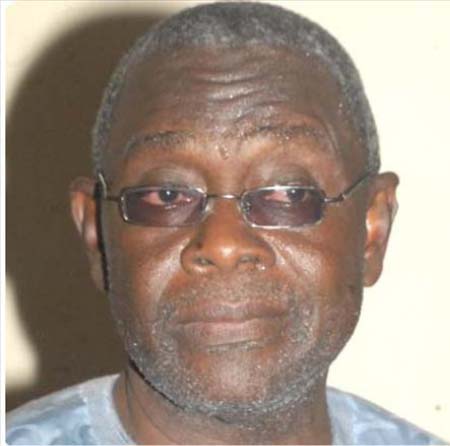
The national treasurer of the opposition United Democratic Party (UDP), Amadou Sanneh, through his counsel yesterday filed a no-case-to-answer submission at the Special Criminal Court in Banjul before Justice Emmanuel Nkea.
Amadou Sanneh was arraigned alongside Malang Fatty and Sambou Fatty and charged with conspiracy to commit an act with seditious intention, sedition, possession of seditious publication and false swearing.
In her submission, defence counsel R.Y. Mendy stated that a no-case submission could be properly upheld on the following grounds: that there was no evidence to prove the essential element of the offence; and when the evidence adduced by the prosecution was so discredited, as a result of the cross-examination or so manifestly unreliable that no reasonable court could convict on it.
She submitted that the 3rd accused had been charged with three counts, and the prosecution had called two witnesses in trying to prove the case against the accused person.
The essential ingredient of the false swearing charge had not been proven, counsel said, adding that PW1 said nothing about the 3rd accused concerning the false swearing.
She further submitted that PW1 and the 3rd accused person did not at anytime bring false attestation or make a false declaration before him, but instead PW1 said the false document was brought by Sambou Fatty.
Counsel argued that there was no evidence before the court from any prosecution witnesses that the 3rd accused made a false declaration.
“I therefore say the essential ingredient was not proven and, therefore, that count had failed,” she added, stating that there was no malicious document allegedly printed by the 3rd accused tendered by the prosecution witnesses against the 3rd accused.
Neither any of the witnesses gave evidence that the 3rd accused printed a malicious document that intended to bring malicious hatred against the government of The Gambia, counsel further submitted.
“There is no such malicious document before the court, which can assist the court to come to a conclusion that the 3rd accused intended to insert hatred, violence or malicice to overthrow the government of The Gambia or to disturb the peace,” said counsel Mendy.
Counsel Mendy added that there was nothing in the evidence of Kebba Secka, neither PW1, to establish the ingredient of the offence of sedition to the effect that the 3rd accused wanted to bring hatred or disaffection to the government of The Gambia; therefore, that count also failed.
She further submitted that there must be an agreement between the accused persons to carry out a seditious act; that these are the ingredients of the charge of conspiracy.
She submitted that the particulars of the offence in the charge of conspiracy were not supported by the evidence of the prosecution witnesses.
She also stated that a certain essential element, which the 3rd accused stands charged with, had not been proven and, therefore, the prosecution had failed to prove it against the 3rd accused person, and urged the court to rule in favour of the 3rd accused and acquit and discharge him.
In response, the Director of Public Prosecutions (DPP) stated that the fact that the two accused persons had been convicted, but not sentenced should not make this a separate trial, and the two could not be served as witnesses in the case since they were not sentenced.
He added that the 3rd accused was facing a four counts charge, and two witnesses were called by the prosecution and several exhibits were tendered.
Exhibit A was the attestation while Exhibit E was the cautionary statement of the 3rd accused.
The DPP argued that exhibit A was connected to exhibit E, no matter how minimal a piece of evidence it was, and that the court could not uphold the no-case-to-answer submission, since exhibit A and E had passed the required minimum of proof in this case.
“All what is expected is to prove the prima facie in the case, that is, the minimum standard of proof required,” he submitted, adding that exhibit A and E called for further explanation.
Exhibit A and E are conclusive and make a prima facie case against the 3rd accused, the state prosecutor went on, and urged the court to discountenance the defence application, as the prosecution had made a prima facie case against the 3rd accused, above the minimum standard, he further stated.
The case continues today for ruling on the no-case submission.

